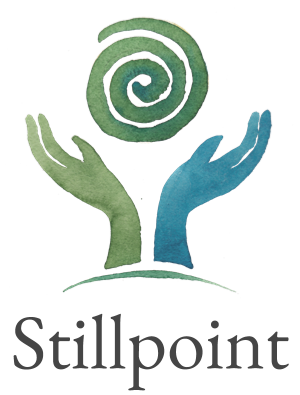Spiritual Direction: A Way of Life
By Rev. Elizabeth Rechter, Executive Director
Spiritual Direction: A Way of Life
I have come to realize that for me spiritual direction is more than a practice I do for and with others. For me it is a way of life. I take the qualities and skills of deep listening, of exquisite attention, into every part of my life. I have heard many others say the same. In this posture, I am expecting God. I expect God in and between all things. I may not see this clearly at all times, but I believe deeply there is not a time when we are apart from God. Knowing this, we do our best to pay attention. My spiritual director assists me in paying attention. And as a companion for others, I hope I help hold them in this same expectation - God is always with us.
And I don’t need to be wise.
This is a helpful reminder for the spiritual companion as we sit with another and listen with them on their journey. Wisdom is not for us to give, but more to name or notice when we hear it. And if we don’t hear it in the moment, we find a place to sit with the unknowing. When I think I need to be the bearer of wisdom for another, I have stopped doing the work of deep listening.
I took a writing class for clergy offered at a local seminary many years ago. It was a specific type of writing called Proprioceptive Writing. I remember the instructor’s first words to us. “This type of writing will not write your sermons for you.” It was disappointing. I was looking for a writing skill as advertised. What she said next convinced me to stay: “but it will let you know what you want to preach on. “
Proprioception is the subtle part of the body’s nervous system that communicates to your physical body that you are you. For the most part, we don’t know we need such a system to tell us that our appendages belong to us. This is my hand. This is my foot. Doesn’t that go without saying? It is a hidden process we don’t realize is working behind the scenes. We don’t ever think that when we stand up, it is because the body knows it was sitting down. The creators of this writing method used the name proprioceptive to describe a way of helping people access and recognize the voice that is their own.
Spiritual companionship is its own subtle process of helping you know you are you; not an interpretation given to you by someone else, and not what I think I should be or wish I could be, but who I am. And in this process, we can learn more of who God is; not someone else’s interpretation, not who we think God should be or we wish God could be, but lingering with our own experience of God. It helps us hear even the subtle parts we might not have words for. It is our work as spiritual companions to help access this knowing.
Our world is full of so many voices. What helps you hear your own voice? What helps you hear God’s voice?
Blessings for the Journey,
Elizabeth+


